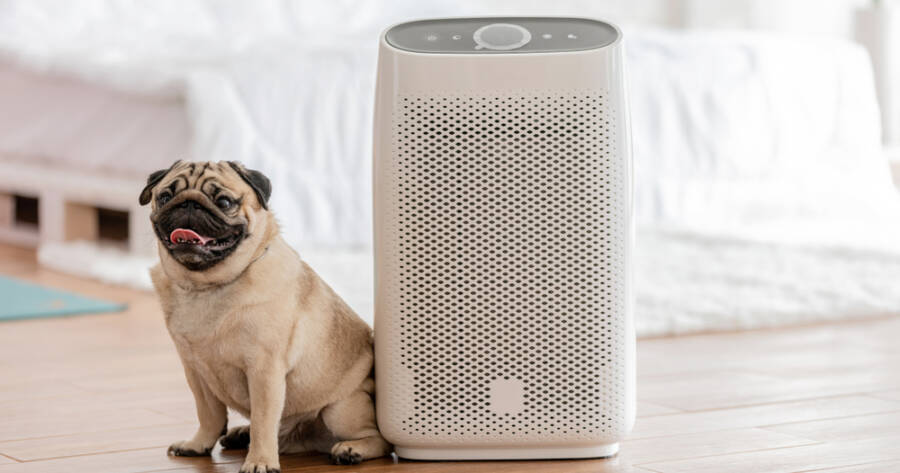With air pollution becoming an increasing concern, many people are turning to air purifiers to improve indoor air quality. These devices are marketed as solutions for removing allergens, dust, bacteria, and even viruses from the air. But do air purifiers really work, and are they worth the investment? Dive into what the science says about their effectiveness.
How Air Purifiers Work
Air purifiers are designed to clean the air by filtering out particles and pollutants. The most common types of air purifiers use HEPA filters, which stand for High-Efficiency Particulate Air filters. These filters are able to capture tiny particles as small as 0.3 microns, which include dust, pollen, pet dander, and smoke particles.
In addition to HEPA filters, many modern air purifiers include activated carbon filters. These are specifically designed to remove odors, gases, and volatile organic compounds (VOCs), which are chemicals released by products like paints and cleaning agents. Some air purifiers also include ultraviolet (UV) light or ionizers to target bacteria and viruses.
The Science Behind Air Purifiers’ Effectiveness
Studies show that air purifiers can indeed reduce indoor air pollution effectively. Research conducted by institutions like the U.S. Environmental Protection Agency (EPA) and the American Lung Association has shown that using a quality air purifier can lower the levels of airborne pollutants, which can improve overall health.
For example, one study found that using HEPA-filtered air purifiers in homes significantly reduced levels of particulate matter (PM2.5), which is known to contribute to respiratory problems. Another study demonstrated the benefits of air purifiers in reducing asthma symptoms and allergies by decreasing airborne allergens like dust mites, pet dander, and pollen.
However, it’s important to note that air purifiers are not a one-size-fits-all solution. Their effectiveness depends on several factors, such as the size of. the room, the type of air purifier used, and the level of pollution in the home.
Benefits of Air Purifiers for Health
One of the most compelling reasons to use an air purifier is the health benefits they can provide. For people with asthma, allergies, or respiratory conditions, air purifiers can make a noticeable difference. Studies have found that HEPA air purifiers effectively reduced indoor concentrations of traffic-related air pollutants, leading to improved asthma control and a better quality of life in children with uncontrolled asthma.
Air purifiers can also help people who suffer from seasonal allergies. By removing pollen and other allergens from the air, these devices can reduce sneezing, coughing, and congestion. Additionally, air purifiers can improve sleep quality by reducing allergens that may trigger nighttime symptoms.
People living in urban areas with high levels of air pollution may also benefit from using air purifiers. Pollutants like nitrogen dioxide, ozone, and fine particulate matter are linked to cardiovascular and respiratory diseases. By filtering out these harmful substances, air purifiers can help mitigate their impact on health.
Limitations of Air Purifiers
While air purifiers are effective in improving indoor air quality, they do have limitations. First, air purifiers can only clean the air in the rooms where they are placed. For optimal results, they need to be sized correctly for the room and run continuously. If the air purifier is too small for the space, it may not be effective at removing pollutants.
Furthermore, air purifiers cannot address all types of indoor air pollution. For example, they cannot eliminate mold growing in walls or on surfaces. If there is a significant mold issue in a home, it’s important to address the root cause, such as moisture or leaks, in addition to using an air purifier.
Another limitation is that air purifiers can sometimes produce ozone, especially if they include an ionizer or UV light. While ozone is useful for sterilizing air, high levels can be harmful to health, causing respiratory issues and aggravating asthma. Therefore, it is crucial to choose an air purifier that does not produce excessive ozone.
Choosing the Right Air Purifier for Your Home
When selecting an air purifier, it’s important to choose one that suits the size of the room and your specific needs. Consider factors such as the type of pollutants you want to address, the noise level, and any special features like smart connectivity or air quality sensors.
For larger rooms, it’s recommended to use a more powerful air purifier with a higher Clean Air Delivery Rate (CADR). This metric measures how quickly and effectively the air purifier can remove dust, pollen, and smoke. Additionally, you should look for a unit with a HEPA filter if you want to target allergens and fine particles.
If you are concerned about odors or chemicals in your home, an air purifier with an activated carbon filter is essential. Some air purifiers also offer UV light or ionization, which can help eliminate bacteria and viruses. However, ensure that these features do not produce harmful ozone.
Are Air Purifiers Worth It?
Air purifiers can be a valuable addition to your home, especially for those suffering from allergies, asthma, or other respiratory conditions. Scientific studies have shown that these devices can effectively remove pollutants from the air, improving indoor air quality and overall health.
However, they are not a complete solution to indoor pollution, and their effectiveness depends on factors like room size, purifier type, and pollution levels.

